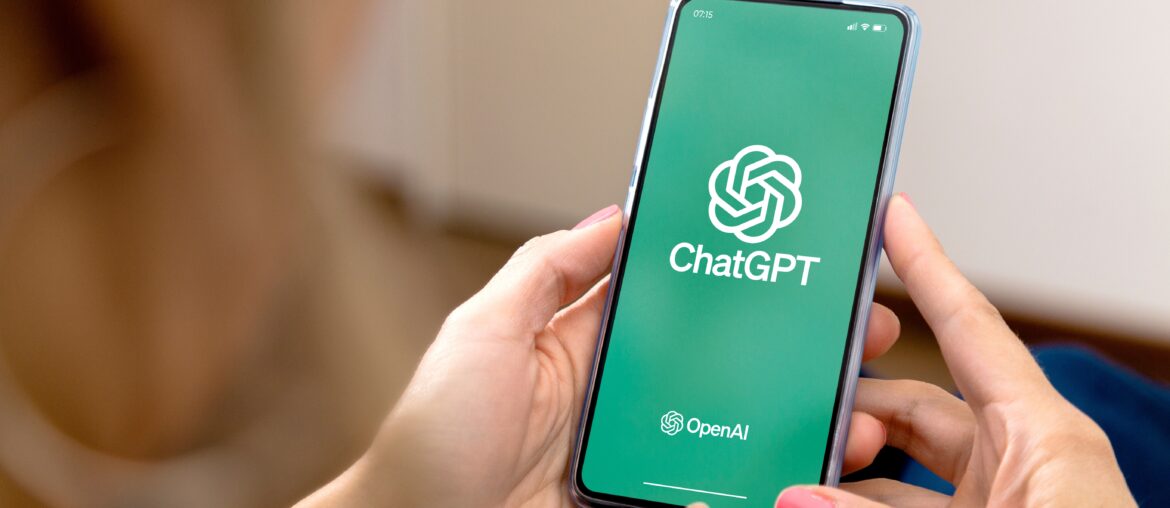Every day we hear about how artificial intelligence (AI) is revolutionizing many aspects of daily life, such as work and the way we communicate. AI has systems capable of replicating human cognitive functions, such as reasoning, problem solving, and understanding language.
Among the many AI platforms that exist today, ChatGPT has become one of the most popular in recent years.
Essentially, ChatGPT is an application that works like an interactive chat, allowing users to “talk” by mimicking a conversation between two people.
The user can ask questions or make requests of the application, and it will respond according to the information it has “learned.”
The tool can also ask clarifying questions or make suggestions about the request the user has made. It can also recognize and reject inappropriate or dangerous requests, such as information on how to commit crimes or perform dangerous acts.
The tool can be accessed via the web (chatgpt.com) or by downloading the app for free from the Apple Store or Google Play, and can be used without creating a user account.
Although ChatGPT represents a huge advance in AI with several features that could help speed up certain tasks when used carefully, it has also raised concerns about the potential for manipulation, misinformation, and bias.
In addition, the growing reliance on technological tools for decision-making raises concerns about their impact on human creativity, decision-making, and cognitive abilities.
How some domestic workers use it
Several La Alianza readers recently shared how they use this tool in their daily lives: Margoth Languidey says she uses it to create employment contract templates, ask political questions, or clarify doubts about economic issues. Rosa Sanluis says she uses it when she wants to send a professional-sounding email or draft an agreement. Geo Atx uses this tool to write emails, translate documents, or ask questions about topics she is unfamiliar with.
Limitations and risks
These types of systems have limited reasoning abilities: at the end of the day, they are still machines. This means they have reduced capacity to handle questions related to emotions, values, beliefs, and abstract concepts.
Some of the main limitations are:
- Errors and inaccuracies, known as “hallucinations”: ChatGPT can produce responses that sound real but are actually incorrect or even nonsensical. Furthermore, it does not have the ability to verify the accuracy of what it generates.
- Risk of misinformation and impersonation: The model can be used to spread fake news or to impersonate other people, with the consequences that this entails.
- Bias and offensive content: Having been trained with large volumes of data from the internet, which include cultural and social biases, its responses may reflect prejudices or even be discriminatory or offensive.
- Outdated information: The model has a cut-off date beyond which its knowledge is unreliable. For recent versions, that cut-off date is June 2024.
- Predictable results and lack of originality: Responses tend to follow repetitive patterns, which can result in unoriginal or uncreative texts.
- Impact on critical thinking: Preliminary research, such as a study by MIT, indicates that repeated use of these AI tools could reduce cognitive effort, creativity, or critical thinking in certain contexts, although these results are not yet definitive.
Recommendations for using ChatGPT with caution
While ChatGPT can be a powerful tool that saves time and facilitates idea generation, and can be an ally for those facing language barriers, it is imperative to take steps to ensure it’s used responsibly and safely. Here are some recommendations:
- Do not share sensitive data: Avoid entering passwords, personal identification numbers, or financial information.
- Disable the use of conversations to train the model. Use temporary chats: In the ChatGPT settings, there is an option called “Improve the model for everyone.” Disabling this option prevents interactions from contributing to training the system.
The tool also offers a “Temporary Chat” option, which does not save conversations or use them for system learning. This article explains step by step how to prevent ChatGPT from saving your information. - Always check critical information: Do not blindly trust AI responses: cross-checking with reliable sources is key to ensuring accuracy.
- Do not use ChatGPT to replace trained professionals: Artificial intelligence can serve as support, but it does not replace doctors, lawyers, psychologists, or financial advisors. These decisions require human judgment, and relying solely on AI carries serious risks.
Editor’s note: This article was originally written in Spanish and translated into English by Tilde Language Justice Cooperative


